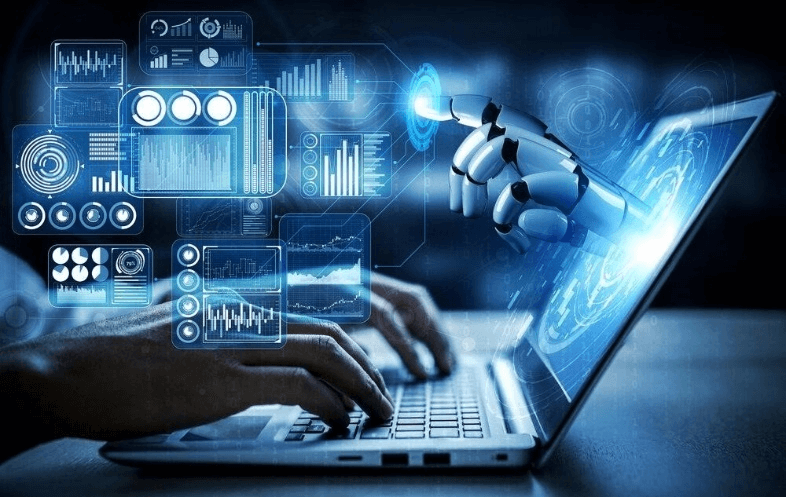
In an era where technology shapes every facet of our lives, it’s no surprise that artificial intelligence (AI) has become a game-changer in the realm of healthcare. AI-driven treatments are revolutionizing the way we approach personalized medicine, opening up exciting career opportunities for those who wish to be at the forefront of this transformative field. But what exactly is personalized medicine, and how is AI making it possible? Let’s dive deep into the world of AI for personalized medicine and explore the careers that are shaping the future of healthcare.
What is Personalized Medicine, and Why Does it Matter?
Personalized medicine, often referred to as precision medicine, is a healthcare approach that tailors medical treatment and interventions to the individual characteristics of each patient. This means considering factors such as a person’s genetic makeup, lifestyle, and environmental influences when determining the most effective treatment plan.
Why is personalized medicine important?
- It maximizes treatment effectiveness.
- It minimizes adverse side effects.
- It enhances patient satisfaction and quality of life.
The Role of AI in Personalized Medicine
Artificial intelligence is the driving force behind the advancement of personalized medicine. AI algorithms analyze vast amounts of patient data, extracting valuable insights that inform treatment decisions. Here’s how AI contributes to the personalized medicine landscape:
- Data Analysis and Predictive Modeling: AI algorithms can analyze a patient’s genetic data and medical history to predict disease susceptibility, progression, and treatment responses. These predictive models help physicians make informed decisions about patient care.
- Drug Discovery and Development: AI accelerates drug discovery by sifting through massive datasets to identify potential drug candidates. This not only expedites the drug development process but also enables the creation of treatments tailored to specific patient profiles.
- Clinical Decision Support: AI-powered clinical decision support systems provide real-time guidance to healthcare professionals. They offer treatment suggestions based on the latest research and patient-specific data, reducing diagnostic errors and improving patient outcomes.
- Image Analysis: In radiology and pathology, AI algorithms can analyze medical images, such as MRIs and CT scans, with remarkable precision. This assists in early disease detection and allows for more accurate diagnoses.
- Patient Monitoring and Follow-Up: AI enables continuous monitoring of patients’ health outside of healthcare facilities. Wearable devices and remote sensors collect data, which AI interprets to detect subtle changes in a patient’s condition, triggering timely interventions.
Careers in AI-Driven Personalized Medicine
The integration of AI into personalized medicine has created a demand for professionals with diverse skill sets. Here are some exciting career paths to explore in this dynamic field:
Bioinformatics Specialist
What do they do? Bioinformatics specialists analyze and interpret biological data, particularly in genomics and proteomics. They play a crucial role in deciphering the genetic basis of diseases and identifying potential therapeutic targets.
Required Skills:
- Data analysis
- Programming (Python, R)
- Genomic data interpretation
- Statistical modeling
Data Scientist in Healthcare
What do they do? Data scientists in healthcare leverage AI to mine patient data, identify patterns, and develop predictive models. They assist in treatment personalization and optimize healthcare processes.
Required Skills:
- Machine learning
- Data mining
- Data visualization
- Healthcare domain knowledge
Clinical Informatician
What do they do? Clinical informaticians bridge the gap between healthcare and technology. They design and implement electronic health records (EHR) systems and ensure the seamless integration of AI-driven tools into clinical workflows.
Required Skills:
- Health informatics
- EHR implementation
- Project management
- Interdisciplinary communication
Medical AI Researcher
What do they do? Medical AI researchers work on cutting-edge projects to develop innovative AI algorithms for healthcare. They collaborate with clinicians to translate research into clinical practice.
Required Skills:
- Deep learning
- Medical domain expertise
- Research methodology
- Collaborative mindset
Telemedicine Specialist
What do they do? Telemedicine specialists facilitate remote patient monitoring and virtual consultations. They ensure that AI-powered telehealth platforms are effective, secure, and user-friendly.
Required Skills:
- Telehealth technology
- Patient engagement strategies
- Regulatory compliance
- User experience (UX) design
The Future of AI in Personalized Medicine: Challenges and Opportunities

As AI continues to reshape personalized medicine, it’s essential to address the challenges that come with this transformation:
- Privacy Concerns: How can we ensure the secure handling of sensitive patient data while reaping the benefits of AI-driven healthcare?
- Regulatory Frameworks: How should AI-driven medical technologies be regulated to ensure safety and efficacy?
- Ethical Considerations: What ethical guidelines should guide AI algorithms in making life-altering medical decisions?
Despite these challenges, the opportunities in AI-driven personalized medicine are boundless:
- More Precise Treatments: AI will continue to refine treatment plans, reducing trial-and-error approaches.
- Remote Healthcare Access: AI-powered telemedicine will bring healthcare to remote and underserved areas.
- Global Collaborations: Experts worldwide can collaborate seamlessly, advancing medical knowledge and treatment options.
The Bottom Line: A Promising Future in AI-Driven Healthcare

As you step into the world of AI-driven personalized medicine, you’ll find yourself at the crossroads of innovation and empathy. You’ll be part of a community of forward-thinkers who harness the power of data and technology to heal, comfort, and extend human lives.
Consider the impact you can make by developing algorithms that detect diseases at their earliest stages, potentially saving countless lives. Picture the satisfaction of working on AI-driven surgical assistants that enhance a surgeon’s precision and minimize patient risk. Envision creating personalized apps that empower individuals to manage chronic conditions effectively, promoting healthier and happier lives.
Furthermore, this field thrives on evolution. AI technologies are in a constant state of refinement and expansion. It’s an ever-evolving journey that demands an appetite for learning, adaptability, and an eagerness to stay at the forefront of healthcare innovation.
In summary, AI for personalized medicine is not just a career choice; it’s an invitation to be a pioneer in a transformative era of healthcare. It’s a realm where you can bridge the gap between technology and humanity, where your contributions directly impact individuals and communities. So, why hesitate? Seize the opportunity to be part of this healthcare revolution, define the future of medicine, and embark on a fulfilling career that promises to be both rewarding and intellectually stimulating. Your journey begins now, and the possibilities are boundless.
In conclusion, AI for personalized medicine isn’t just a buzzword; it’s a dynamic reality that’s reshaping healthcare as we know it. It’s a field that offers intellectually stimulating challenges and the satisfaction of knowing that your work directly improves lives. So, why wait? Seize the opportunity, be part of the healthcare revolution, and help define the future of medicine. Your journey towards a fulfilling career in AI-driven personalized medicine begins here and now.
Frequently Asked Questions (FAQ) – AI for Personalized Medicine Careers
Welcome to our AI for Personalized Medicine Careers FAQ section. Here, we address common queries about careers in the exciting field of AI-driven personalized medicine.
- What is personalized medicine, and how does AI contribute to it?
Personalized medicine, also known as precision medicine, tailors healthcare treatments to individual patients based on their unique characteristics. AI plays a crucial role in personalized medicine by analyzing vast datasets to predict disease risks, optimize treatment plans, and enhance patient care through data-driven insights.
- What career opportunities are available in AI for personalized medicine?
There is a wide range of career paths, including:
- Bioinformatics Specialist
- Data Scientist in Healthcare
- Clinical Informatician
- Medical AI Researcher
- Telemedicine Specialist These roles involve data analysis, algorithm development, informatics, and more, all contributing to AI-driven personalized medicine.
- What skills are essential for a career in AI-driven personalized medicine?
Skills required may vary depending on the specific role, but common skills include data analysis, programming (Python, R), machine learning, domain-specific knowledge in healthcare, and the ability to work collaboratively and communicate effectively with multidisciplinary teams.
- How can I prepare for a career in AI for personalized medicine?
Start by gaining a solid educational foundation in relevant fields such as computer science, data science, biology, or medicine. Additionally, seek internships, attend conferences, and engage in ongoing learning to stay updated with the latest advancements in AI and healthcare.
- What are the challenges and opportunities in AI for personalized medicine?
Challenges include privacy concerns, regulatory complexities, and ethical considerations. However, the opportunities are vast, including more precise treatments, remote healthcare access, and global collaborations that advance medical knowledge and treatment options.
- Is a career in AI for personalized medicine financially rewarding?
Yes, careers in this field often come with competitive salaries due to the specialized skills and expertise required. Additionally, the potential for positive societal impact can be highly rewarding in itself.
- How can I stay updated on the latest developments in AI for personalized medicine?
Stay informed by following reputable healthcare and AI news sources, attending industry conferences, and joining professional networks or associations related to healthcare informatics and AI.
- Are there any ethical considerations when working in AI for personalized medicine?
Yes, maintaining patient privacy and data security is paramount. Ethical considerations also encompass ensuring AI algorithms are unbiased and that decisions made by AI tools align with the best interests of patients.
- Can I transition into a career in AI for personalized medicine from another field?
Yes, many professionals transition into AI-driven personalized medicine from related fields like healthcare, biology, or computer science. Gaining relevant skills and knowledge through courses and certifications can facilitate this transition.
- How can I make a meaningful impact in AI-driven personalized medicine?
To make a meaningful impact, focus on continuous learning, collaboration, and the ethical application of AI technologies. Contributing to advancements that improve patient outcomes and healthcare quality is the ultimate goal.